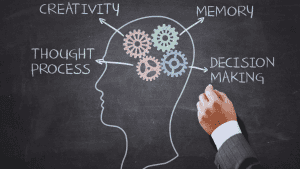The journey of attracting top talent extends well beyond the hiring process into the critical phases of onboarding and retention. Successfully integrating new employees into the company is vital for ensuring they feel welcomed, valued, and equipped to contribute effectively from the start. This phase can significantly influence a new hire’s long-term engagement, performance, and satisfaction.
Onboarding and Integration
Personality assessments, such as personality assessments, offer valuable insights that can inform and enhance onboarding strategies. These assessments provide detailed information about a new hire’s preferred communication styles, work preferences, and motivational drivers. By understanding these individual traits, businesses can tailor their onboarding programs to meet the specific needs and preferences of each new employee.
For example, if a personality assessment reveals that a new hire thrives in collaborative environments and values frequent feedback, the onboarding process can be designed to include more team interactions, mentorship opportunities, and regular check-ins. Conversely, if a new employee prefers structured, independent work, the onboarding program can emphasize clear guidelines, self-paced training modules, and opportunities for focused, individual tasks.
This personalized approach to onboarding has several key benefits including:
1. Accelerated Integration: By addressing the unique needs and preferences of new hires, businesses can help them feel more comfortable and confident in their new roles more quickly. This tailored onboarding experience allows new employees to acclimate to the company culture, understand their responsibilities, and start effectively contributing in a meaningful way in a shorter timeframe.
2. Enhanced Engagement: When new hires feel that the company genuinely understands and values their individual traits, they are more likely to feel engaged and motivated. Personalized onboarding programs show that the company is invested in their success, fostering a sense of belonging and commitment.
3. Higher Satisfaction: Employees who experience a smooth and supportive onboarding process are more likely to be satisfied with their job and the company. This satisfaction can lead to increased loyalty, reducing turnover rates and the costs associated with rehiring and retraining.
4. Improved Performance: Understanding new hires’ strengths and work preferences enables businesses to assign tasks and responsibilities that align with their natural abilities. This alignment can enhance job performance, as employees are more likely to excel in roles that suit their skills and working styles
5. Strengthened Team Dynamics: Tailored onboarding programs can also facilitate better integration into existing teams. By understanding how new hires prefer to communicate and collaborate, businesses can foster positive interactions and relationships from the start. This can lead to a more cohesive and harmonious team dynamic, benefiting overall productivity and morale.
6. Long-Term Development: Personalized onboarding sets the stage for ongoing professional and personal development. By identifying new hires’ strengths and areas for growth early on, businesses can create customized development plans that support continuous learning and career progression. This proactive approach helps employees feel supported in their long-term career goals, further enhancing retention.
The journey of attracting top talent extends into the critical phase of onboarding, where personality assessments can play a pivotal role. By understanding the preferred communication styles and work preferences of new hires, businesses can design personalized onboarding programs that cater to individual needs. This approach accelerates the integration of new employees, enhances engagement and satisfaction, and sets the stage for long-term success. Ultimately, personalized onboarding not only benefits new hires but also contributes to a more dynamic, motivated, and high-performing workforce.
Talent Retention and Development
Attracting top talent is just the beginning; retaining and developing that talent is equally important. personality assessments contribute to talent retention by providing ongoing insights into individual and team dynamics. Businesses can use this information to design professional development initiatives that align with the natural strengths and growth areas of their employees. By investing in the ongoing development of their teams, businesses create an environment where top talent feels valued and supported, reducing turnover and promoting long-term commitment.
In the process to attract top talent, businesses can gain a strategic advantage by integrating personality assessments into their talent acquisition and management processes. From crafting targeted job descriptions to streamlining the hiring process, understanding cultural fit, and enhancing onboarding and development initiatives, personality assessments offer a comprehensive toolkit for businesses seeking to build high-performing teams. By recognizing the diverse strengths and preferences of potential employees, businesses can create a workplace that not only attracts top talent but also fosters a culture of engagement, collaboration, and continuous growth.







